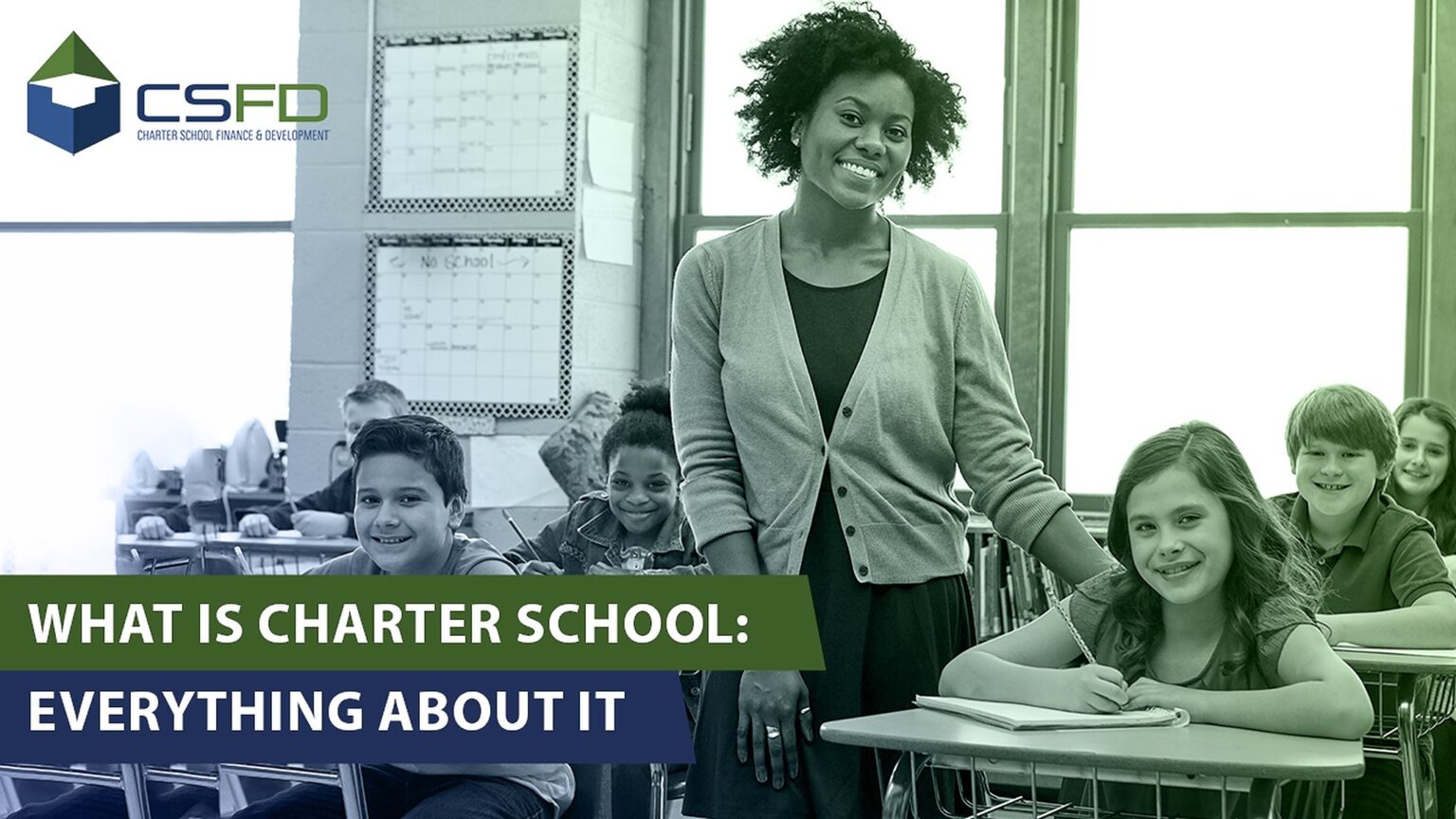
What Is Charter School: Everything About It
Charter School is not possible unless there is Charter School Finance. But first, let’s find out what it is. Charter School is a type of school in the United States that is autonomously managed and managed with public funding. Such schools may follow a particular educational model or curriculum and are generally operated with a smaller student population than traditional public schools. Charter schools are opened upon application from teachers, parents, or other community leaders who specialize in a particular subject. In addition, their contracts set the school’s mission, student enrollment and performance goals. Contracts usually cover a five-year period and can be renewed or closed at the end of that period.
Charter schools offer quite a few advantages over traditional public schools. These appear as criteria such as autonomy and flexibility. For example, they have greater control over selecting and hiring teachers, the student enrollment process, and curriculum and teaching methods. However, this autonomy means being subject to stricter standards of accountability and performance. The performance of charter schools is evaluated based on factors such as student achievement, graduation rates, and other performance indicators. For this reason, charter schools frequently participate in national evaluation programs, and the results of these programs can be an important factor in deciding whether schools should renew their contracts.
Advocates of charter schools say they provide students with a better educational opportunity and offer more options, especially for disadvantaged students. However, critics argue that by attracting students from traditional public schools, charter schools reduce the resources of public schools and therefore increase inequalities. Charter schools have spread rapidly in the United States, with approximately 6 percent of students in the country currently studying in charter schools.

What is Charter School?
Schools under the name Charter School are used to describe a school in the United States that is autonomously administered and managed with public funding. Such schools are operated under a special contract or specification. These agreements include detailed information about following a particular educational model or curriculum, student enrollment, performance goals, and more. So-called charter schools are consulted and managed by teachers, parents, or other community leaders who specialize in a particular subject. The overall aim of these schools is to provide students with a better educational opportunity by providing more autonomy and flexibility than traditional public schools.

How to get Charter School Finance?
Charter Schools may face some difficulties in accessing funding, especially for start-up schools. As such, there are many different organizations and programs available to help Charter Schools meet their funding needs. These organizations of charter school finance provide a variety of services to fund Charter Schools, raise funds to meet students’ educational needs, and support the financial management of schools.
Providing charter school financing to Charter Schools means ensuring that they have access to the resources necessary to establish and operate them and to meet the educational needs of students. In addition to student enrollment fees, this support can cover many different financial needs of Charter Schools such as teacher salaries, building and facility rentals, student materials, educational technology and other expenses.
Charter Schools, unlike traditional schools, often have less access to public funding. Therefore, providing financial support to Charter School Finance is critical to increasing the sustainability of these schools and the success of their students. Financial support organizations support the financial management of Charter Schools, helping them make the best use of resources.
Organizations that provide financial support to Charter Schools can be different types of charter organizations operating in the private or public sector. These organizations can support Charter Schools by making donations, providing financing, providing financial planning and management support, or creating special funds for Charter Schools.

What Are the Benefits of Charter School?
Charter Schools can be said to be no better or worse than other schools. Each school has its own strengths and weaknesses, and each school may have different approaches to providing the best education for its students.
Charter Schools is designed to provide a customized education to students by offering a different model. This model ensures that students receive an education that suits their learning styles and interests, and gives teachers more freedom to teach. In addition, Charter Schools, unlike other schools, have different metrics for monitoring school administration and student performance.
Charter Schools provide students with a customized education, ensuring that students receive an education that fits their learning styles, interests and needs. This allows students to have greater learning and success potential. Charter Schools often work with smaller classes, giving teachers the opportunity to give students attention that is more special. This can help students have more learning potential.
Charter Schools offer a flexible curriculum and give teachers more freedom to teach. This allows teachers to offer students more creative and innovative approaches to learning. It also offers more freedom in choosing teachers. This gives an opportunity to attract and retain more experienced, qualified and passionate teachers.
Charter Schools encourage greater parent involvement and allow families to be more actively involved in their students’ education. This can help students get more support and be more successful in school.

What Are Charter School Losses?
Although Charter Schools offer many advantages over traditional schools, they also have some disadvantages. Charter Schools have some advantages and disadvantages compared to other schools. These advantages and disadvantages differ in each school, and each school has its own unique experience. However, some research shows that Charter Schools have some downsides compared to traditional schools.
Some Charter Schools only accept certain groups of students. This can create inequities in students’ access to educational opportunities. At the same time, some Charter Schools may face financial difficulties. This situation can negatively affect the education quality of students.
Some Charter Schools may have a hard time finding enough qualified teachers. This can negatively affect students’ learning experience. In addition, some Charter Schools may have a small number of students. This can result in underutilization of school resources and limitations in students’ social interactions.
Additionally, such schools may not have an effective management structure. This can negatively affect the school’s activities and students’ learning experience.







